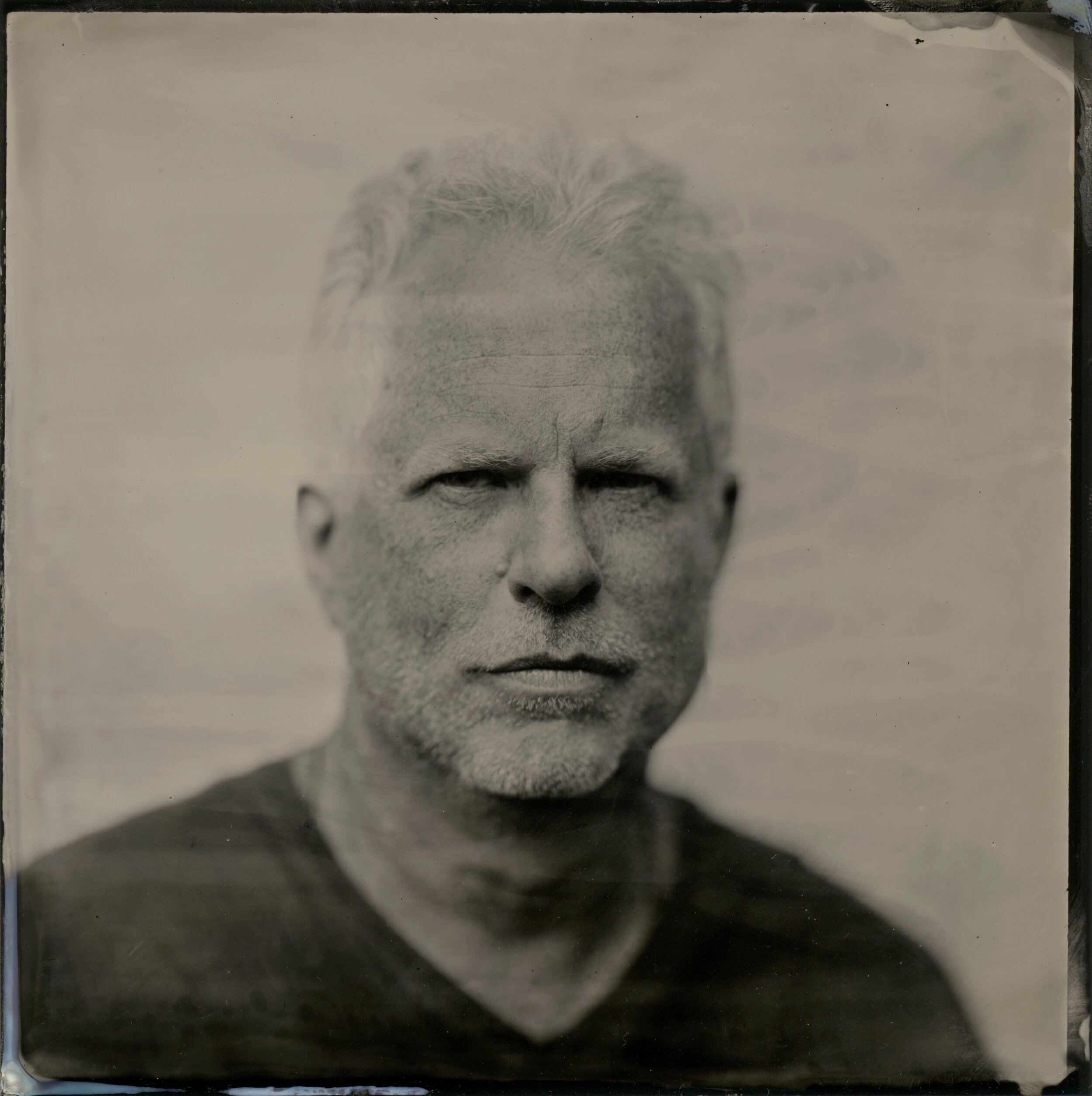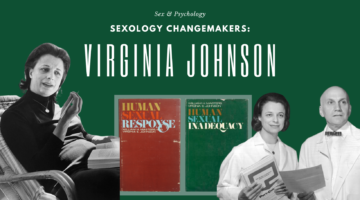How Civilization Has Changed Sex and the Future of Sex: A Conversation with Dr. Christopher Ryan
December 2, 2019 by Justin Lehmiller
I recently interviewed Dr. Christopher Ryan (author of Sex at Dawn) about his latest book, Civilized to Death: The Price of Progress. Ryan argues that while we like to think that civilization is our greatest human accomplishment and that every advance we’ve made—scientific, medical, or otherwise—has made things better, the truth is that every advancement has brought with it a different set of problems. And, sometimes, the new problems are more serious than the ones we were trying to fix.
This is the second half of my interview series with Dr. Ryan in which we focus on the ways that civilization has changed sex and reproduction, as well as the future of sex. In case you missed Part 1, check it out first here, where we talk about sexual repression, sex education, and how sex varies across cultures, among other things.
The rest of my conversation with Ryan appears below, which has been lightly edited for clarity.
Lehmiller: Let’s talk a bit about the ways that civilization has changed sexual health and reproduction. One of the things you talked about in the book that I thought was really interesting was how civilization has contributed to a rise in breast cancer, which you tie to changes in how often women are going through their menstrual cycle. Can you talk a little bit about that?
Ryan: We know that when women ovulate, there are hormonal surges that happen at ovulation and menstruation, which can affect rates of cellular growth that can result in mutations. Of course, cellular mutations are what give rise to cancer, all sorts of cancer, but in this case, particularly breast and ovarian cancer are what doctors are looking at. Doctors are finally turning to look at the differences between the ancestral environment and the modern environment and finding, in many cases, keys to understanding problems. We see this in diet, we see it in our exercise patterns, our stress patterns, our sleep patterns—all of these different areas. We can look at the differences between how our ancestors evolved and how we’re living today and see the conflict points between those two things and how they generate various health problems, whether it be diabetes or heart disease or structural problems in the back, chronic pains, depression, even suicide.
In the case you’re referring to here, what’s really interesting is that if you look at a typical woman’s life in pre-history, what you would find is that the hunter-gatherers don’t start menstruating until they’re 17-18 years old. They would begin having sex quite a bit before that, but their menstrual cycles don’t begin until 17 or 18 because of the fact they have much lower body fat and their environment doesn’t contain as many estrogenic compounds as are found in the contemporary environment.
So a woman starts menstruating around 17 and this lasts until menopause typically hits at mid-50s on average. She would become pregnant early on, have a baby, and breastfeed for around four years. Between the pregnancy and the four years of breastfeeding, she would not ovulate because a woman’s body will not ovulate while she’s breastfeeding, assuming that her body fat content is quite low, which is typical of hunter-gatherers. Then she would stop breastfeeding and maybe get pregnant again in the next year or year and a half, and then go through the cycle again.
By contrast, modern women begin menstruating at age 11-12 and are only having one, maybe two pregnancies in their lifetime. And if they breastfeed at all, it’s typically only for a few months. So if you run the numbers, modern women go through the menstrual cycle four to five times as often as prehistoric women did. So this is a very clear case where the body is being pushed into a very unnatural situation. Now, no one has definitively established this, but researchers are very concerned about the fact that women’s bodies are going through these hormonal changes several times more frequently than would be expected in our ancestral environment.
Lehmiller: That’s so interesting and something that I hadn’t really thought much about before, but it’s a prime example of how our bodies today are different and being affected by civilization in ways that are radically different from how they would have been in much earlier times and environments.
Something else that’s different is how women give birth today compared to how they did in the past. You mentioned briefly in the book that there’s been this dramatic rise in C-section births even when they’re not medically necessary. How is that affecting human health? What’s the link between C-sections and infant health?
Ryan: Well, there seem to be several different implications here, and not only for the health of the infant, but also for the health of the mother. In fact, some researchers think that postpartum depression could be linked to skipping over the process of giving birth and the hormonal changes that happen within the mother as she gives birth. So that’s an interesting application. But as far as the health of the child, the main concern is that when a child is born vaginally, the child receives the mother’s microbiome on the child’s face, in their eyes, in their mouth, on their skin. Vaginal secretions coat the child through the birth canal, and these beneficial bacteria that the child receives from the mother colonize the newborn and will stay on that child’s body throughout his or her life. Being colonized with this beneficial bacteria stops other bacteria from getting a foothold.
A lot of people don’t realize this, but each one of us is a swarming community of microbes, both on the surface of our bodies and in our digestive systems. A lot of autoimmune disorders seem to be related to imbalances in the microbiome, including mental health issues, which seem to be related to the gut. This is very cutting-edge research that is just really getting interesting at the moment. But certainly digestive disorders, mood disorders, asthma, Crohn’s disease—many different disorders seem to be related to imbalances in the microbiome.
So doctors recently have started taking vaginal swabs from the mother and rubbing them on the face and the mouth and the eyes of children born by C-section to try to establish this microbiome colony on the child before the sort of random and often dangerous microbes from elsewhere can establish themselves.
Researchers have found that kids who are delivered by C-section tend to be covered with the bacteria that just happens to be in the hospital room or on the hands of the doctors and nurses. This is clearly a problem for kids. The mother’s colony of defensive microbes is primed to help that kid. They’ve evolved in the mother over her lifetime to be beneficial to the child.
It’s the same thing with breastfeeding. The colostrum and the first few days of breastfeeding is very rich in the bacteria that the child needs in his or her digestive system for the rest of their life.
Lehmiller: The switch away from breastfeeding toward formula is definitely another way that civilization is changing reproduction and potentially impacting our health.
So we’ve talked a bit about civilization and how it affects women’s bodies and reproduction, but there are also implications for men, right? One example that you point out in the book is that we do all of this routine circumcision on male infants in the United States when it’s not medically indicated. It’s something that’s often done without any real thought. Do you have any sense of what the effects of circumcision are when it’s performed on this routine basis?
Ryan: To be honest, I’m far from an expert on this, but as you say, it’s routine in the United States for absolutely no medical reason. The reason that it continues to be ubiquitous is cultural drift. It began with John Harvey Kellogg and the anti-masturbation frenzy of the 19th century.
As far as its effects on boys and men, as I said, I don’t have any concrete data, but it certainly seems that this kind of a traumatic experience for an infant would have lasting effects. We used to think that infants couldn’t feel pain, so they weren’t given any anesthesia because their underdeveloped brains were incapable of experiencing pain. If you’ve ever heard a baby cry, that seems like a completely absurd notion, but it’s amazing what delusions we can think ourselves into.
So I think just starting with one of your very first experiences being extremely painful, being held down, and having possibly the most vulnerable and sensitive area on your entire body cut can’t have any sort of positive effects.
Lehmiller: With all of these different issues that we’ve talked about here, what’s your take on the future—and the future of sex in particular? Are you optimistic or pessimistic?
Ryan: I don’t know whether I call myself optimistic or pessimistic or realistic, Everybody thinks they’re realist, but I think that I don’t know what’s happening. I think we’re at a pivot point—a real turning point for humanity. And I can’t claim to know what’s going to happen.
As I outlined in the book, I think there are three possibilities. One is that we continue going down the path that we’re on, which is a hybridization of a humanity and technology where we continue to be absorbed into our phones and the virtual world allows the destruction of the biological world. We colonize Mars and follow the Elon Musk vision of humanity’s trajectory. In that case, I think sexuality will continue to be controlled and restrained and redirected into technology in the form of sex dolls and robots and controlled breeding programs. There will be a lot of people just checking out of sex entirely, as is already happening in Japan and other parts of the world.
I think that’s one possibility. I think another possibility is civilizational collapse. Every civilization that’s ever existed has collapsed, and there’s no reason to think ours is somehow uniquely immune to the causes of collapse. In fact, if you study previous civilizations in their collapses, to me it looks pretty clear that we’re already in the process of collapse.
The third possibility is much more optimistic and it’s one in which we’ve been on this journey—sort of like Joseph Campbell’s “The Hero’s Journey,” where he wrote that the origin myths of every society in the world align pretty closely to the story of the young person who goes out, leaves home, and has challenges and adventures and meets all these interesting characters and has near-death experiences. And then they return home with the knowledge that they’ve gained on this journey and they’re able to bring a balance and abundance to their home that they never had before. I hope that’s what we’re doing. I hope that we’re at this turning point where we’re starting to turn back toward home.
I think there’s a lot of evidence for this. I see it in the fascination with the paleo movement. And people looking to tribalize their lives. There’s also van life—lots of people want to live in vans. Ten years ago, if you lived in a van, it was an act of desperation. Now people are choosing to do that because of the freedom and the minimalism. People are understanding that more possessions don’t lead to greater happiness. They’re cutting back on their possessions. They’re simplifying their lives in order to have richer experiences and relationships.
So if in fact we’re at this turning point where we’re turning back toward home, then I hope and expect that our sexual experiences will reflect that same yearning for where we came from. And as I explicated in Sex at Dawn, we came from a place where sexuality was not seen as a possession to be jealously guarded, but as a beautiful way of connecting with people that we love and trust and rely upon. And building these interconnected networks of intimacy allowed us to flourish as a species up until the advent of agriculture.
I see this happening all around me. I see friends buying land and going off and living together and helping each other raise kids and taking care of each other as they get old. I see this sort of mutual dependence—a celebration of mutual dependence—becoming more and more popular as we see the promises of civilization being betrayed. People are realizing there might not be social security, so they better put together a community of people who are going to take care of each other.
There’s an expression that I love in Africa, which is that the best place to store extra food is in your friend’s stomach. I think that if we looked at life that way and at other levels—not only food, but maybe the best place to store some of your savings is helping your friend pay off his mortgage or helping somebody take care of their children when they’re young and struggling and then later they’ll take care of you—I think this is a very natural way for us to live. As we see the structures of civilization collapsing, we will in fact be forced to turn to each other.
I think that as we do, we’ll find that we’re actually much happier. You know the insurance commercial, “like a good neighbor, State Farm is there?” I keep thinking, no, I’d rather have the good neighbor. I don’t need the company who’s pretending to be a good neighbor.
Be sure to check out Dr. Ryan’s new book Civilized to Death and read my review of Ryan’s previous book Sex at Dawn here.
Want to learn more about Sex and Psychology? Click here for previous articles or follow the blog on Facebook (facebook.com/psychologyofsex), Twitter (@JustinLehmiller), or Reddit (reddit.com/r/psychologyofsex) to receive updates. You can also follow Dr. Lehmiller on YouTube and Instagram.
Image Credits: Avid Reader Press
Check out these other interviews with authors:

Dr. Justin Lehmiller
Founder & Owner of Sex and PsychologyDr. Justin Lehmiller is a social psychologist and Research Fellow at The Kinsey Institute. He runs the Sex and Psychology blog and podcast and is author of the popular book Tell Me What You Want. Dr. Lehmiller is an award-winning educator, and a prolific researcher who has published more than 50 academic works.
Read full bio >


